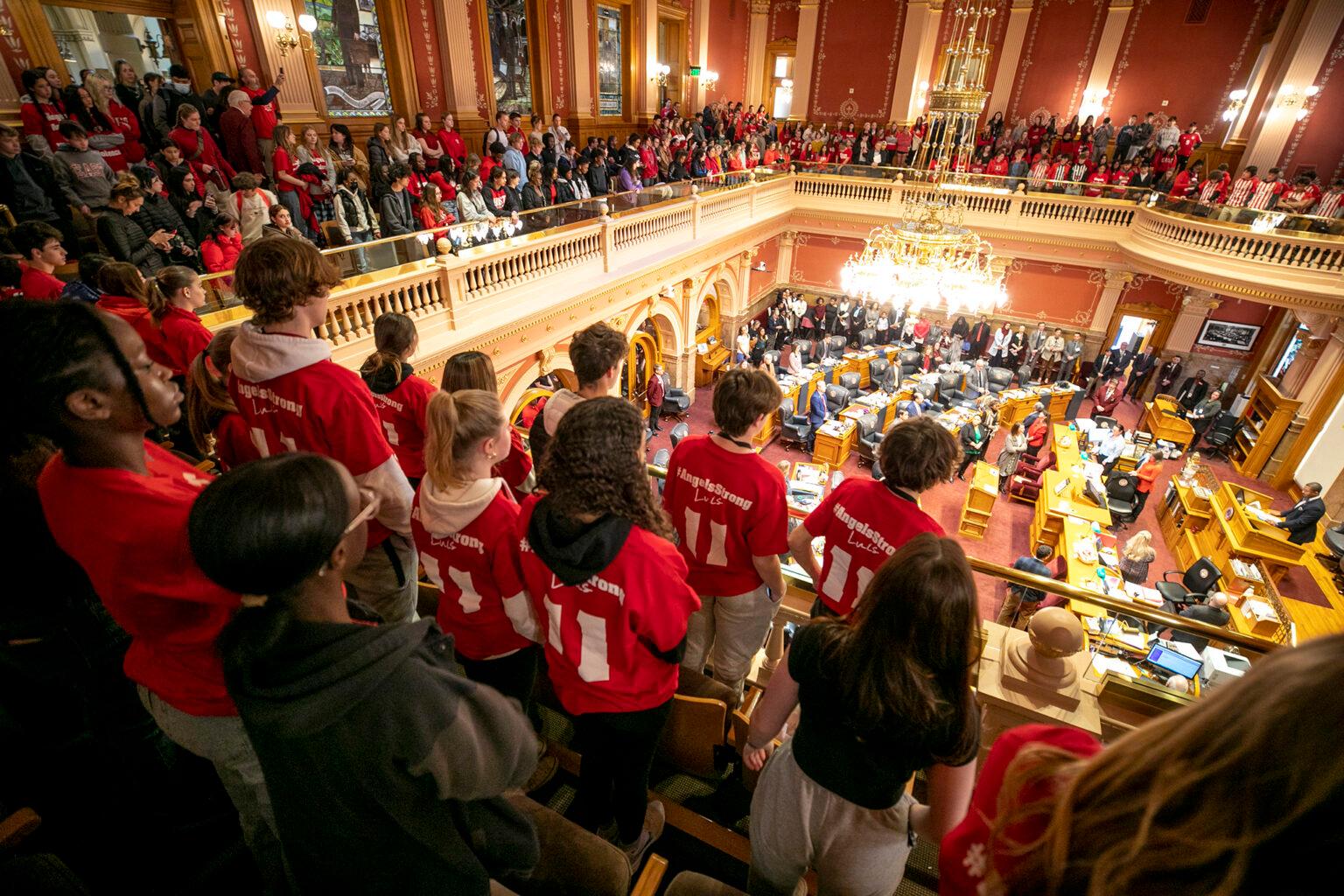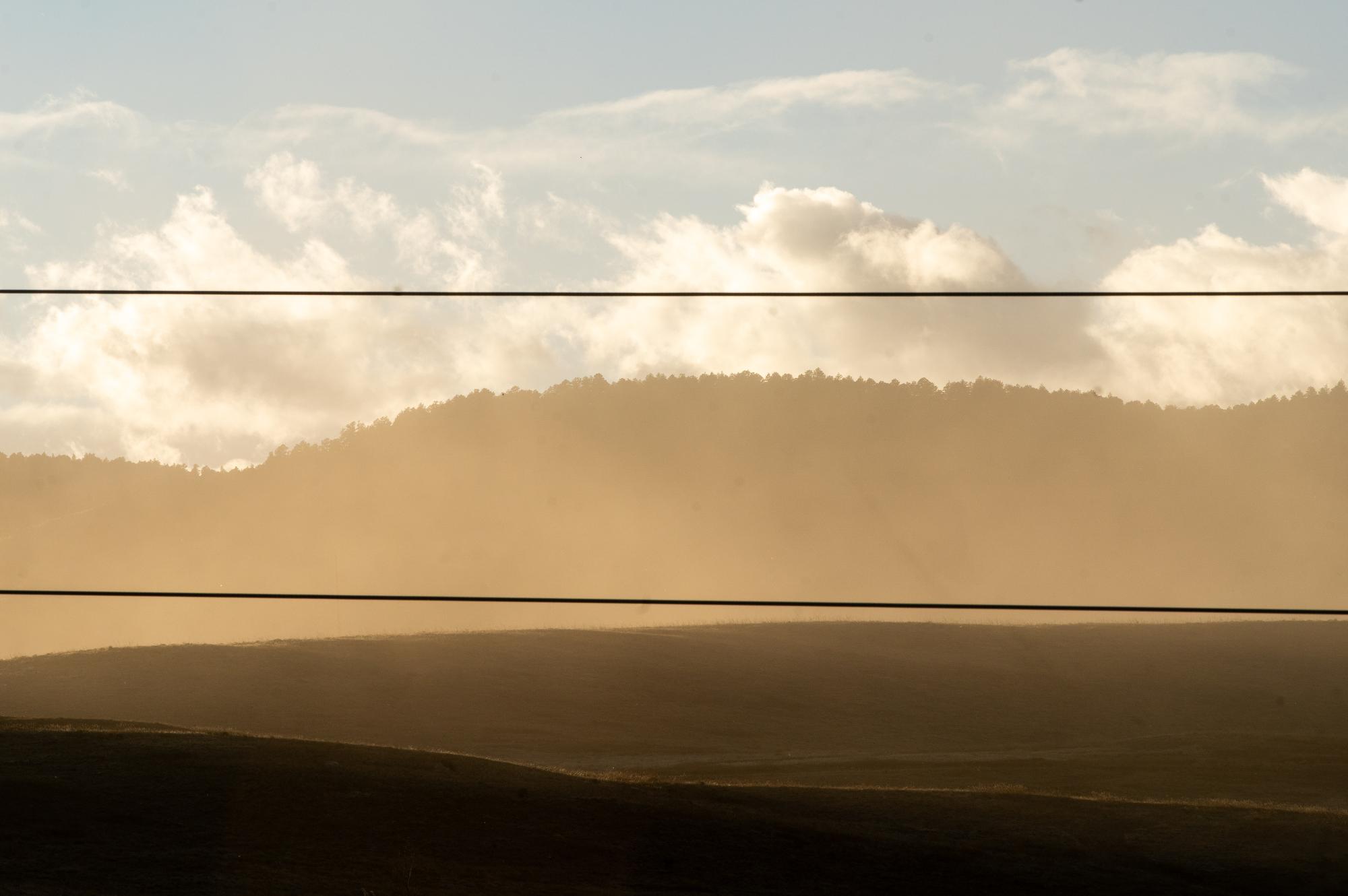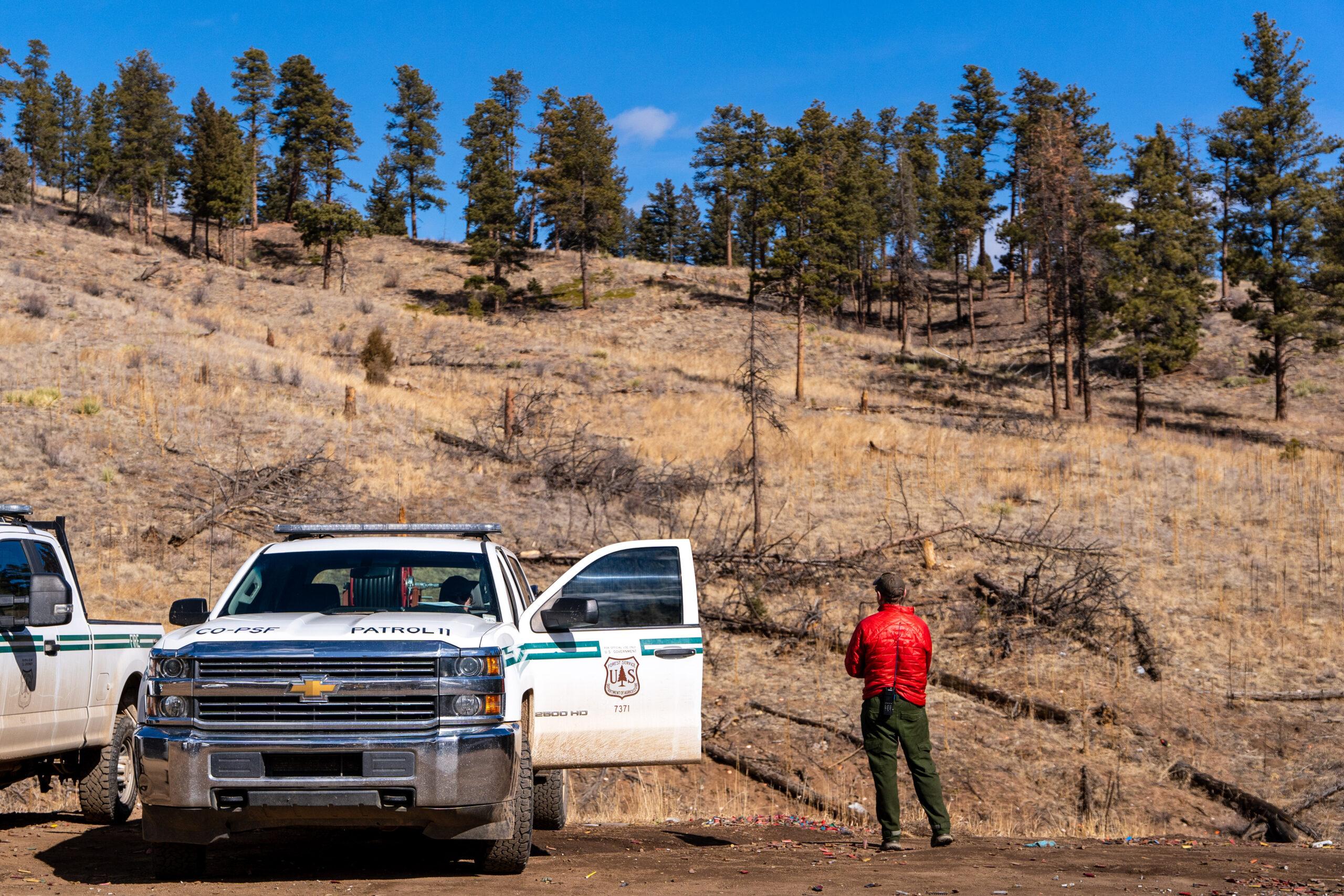
On Monday, the Colorado legislature gave its final approval to two Democratic gun bills, the first measures to pass from a package of stricter gun laws lawmakers have proposed this session. Their next stop is Gov. Jared Polis’ desk.
The two bills will:
- Add district attorneys, educators, health care providers, and licensed mental health professionals to the list of people who can file an Extreme Risk Protection Order to temporarily remove someone’s guns
Also close to passage is a measure to make it easier to sue firearm manufacturers for liability; that bill is headed to a conference committee to work out differences between the House and Senate versions.
A fourth bill, requiring a three-day waiting period to buy a gun, is still pending in the House but is also expected to clear the legislature relatively soon.
Bills that would ban ghost guns and assault weapons are still on the way
And this may not be the end of this session’s debates over gun policy — lawmakers are preparing to introduce a bill to ban ghost guns shortly, and a ban on so-called ‘assault weapons' has been introduced but has yet to be scheduled for a hearing.
“I think that now is the time for us to address the tremendous violence that we're seeing in our state and then also across the nation,” said Democratic state Sen. Rhonda Fields, whose son Javad Marshall Fields was killed due to gun violence.
She’s a prime sponsor on the assault weapons ban.
Passing stricter gun laws is a top priority for the majority party this session. In the last five years, Democrats have grown and solidified their political power and now hold their largest legislative majority in state history, in addition to maintaining control of statewide elected offices.
“(If) we don’t address the public health crisis that is gun violence, people die,” said Democratic Sen. Tom Sullivan of Littleton. “That's why we have to do something.” Sullivan was the lead sponsor of the original red flag bill and this year’s expansion.
Sullivan got involved in politics after his son Alex was killed in the 2012 Aurora theater shooting.
He has made it his mission at the statehouse to keep gun violence at at the forefront of policy discussions in his caucus, and to urge Democrats to go on offense.
In recent years Democrats have passed laws requiring firearms to be properly stored and people to report their lost and stolen guns. They also created an office of gun violence prevention.
“My conversation with leadership and the rest of the caucus (has been) that we're going to talk about this, just like you talk about transportation and education and healthcare and mental health,” Sullivan said.
Unlike earlier forays into gun policy, which resulted in significant electoral backlash (a package of 2013 reforms led to historic recalls and contributed to Republicans taking back control of the state Senate), Colorado Democrats have not suffered political damage from the more recent bills they’ve passed.
Instead, opponents are preparing legal challenges. The prominent gun rights group, Rocky Mountain Gun Owners, said they believe the courts will agree the measures are unconstitutional. The group took to Twitter to solicit people with the right legal standing to participate in at least one of its lawsuits.
Debating the future of guns in Colorado
While Democrats are largely united behind these four bills, conservatives at the Capitol call them unconstitutional and say they will harm Coloradans, while failing to fix the problems they’re meant to address.
“The personality of Colorado is kind of the West and firearms are part of that. So I kind of hate to see this being one of the places that it's really clamped down on,” said House Minority Leader Mike Lynch.
The gun control package is moving forward against the backdrop of two recent high-profile shootings involving students from Denver East high school.
Earlier this year, 16-year-old student Luis Garcia was fatally shot just outside the school. Then weeks later, a 17-year-old student shot and severely injured two administrators while they were patting him down. That student fled and later took his own life.
In reaction to those events, hundreds of students from numerous Denver high schools have marched on the capitol, demanding stricter gun laws.
“We shouldn't have to do this. We shouldn't have to fight for our safety. We are tired, we are terrified, and we are angry,” said Angeli Cazares, a sophomore who took part in the protests.
Marathon objections
Even though Republicans didn’t have the votes to stop the measures, the debates on the chamber floors have been among the longest lawmaking marathons in recent memory. The House spent 30 hours over a single weekend on three of the bills, until Democrats invoked a rarely used rule to limit debate.
The move sparked Republican outrage.
“The majority is basically saying to us, ‘we have a calendar we want to keep, and so we are gonna silence you on the things you want to talk about so that we can keep our calendar and we can check all the boxes and get all the policies passed we want to get passed.’ And the minority is saying, but ‘hey, wait, we have voices too,’” said Republican state Rep. Stephanie Luck from Penrose.
While Republicans tried to slow things down, there hasn’t been a groundswell of grassroots protests at the capitol like in previous years on these issues. Hearings on 2013 the bills saw the capitol encircled by protesters waving signs and honking horns, while a small plane flew overhead trailing a banner opposing gun control.
In contrast, this year’s hearings were relatively quiet.
“I think unfortunately the public is starting to understand that the Democrat supermajority really isn't interested in having a balanced discussion about any of these issues,” said Republican state Rep. Gabe Evans from Weld County.
He said that, while he’s been inundated with emails from voters in his mostly rural district opposing the bills, they don’t think their voices really matter anymore.
“With my constituents. I mean, they tell me, ‘wow, I'm surprised they let you speak at all. Why would I even go down there? If they don't listen to you, why would they listen to me?’”
Funding for public media is at stake. Stand up and support what you value today.








